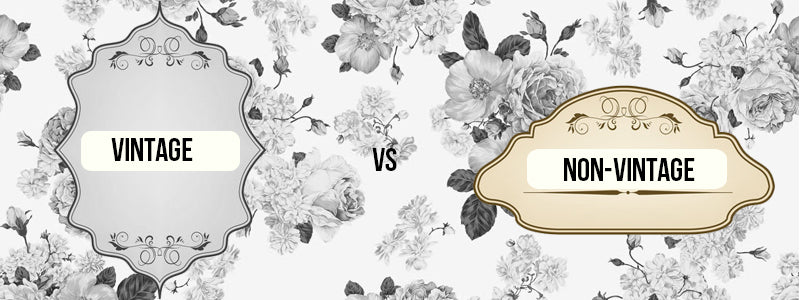Your Cart is Empty
FREE NEXT WORKING DAY DELIVERY FROM $250.
FREE NEXT WORKING DAY DELIVERY FROM $250.
Know What You're Popping Before You Open The Next Bottle Of Champagne.
August 25, 2018 3 min read

6 key facts and frequently asked questions about Champagne & sparkling wines.

- Champagne is a winemaking region in France, so only sparkling wines from there are Champagne; from everywhere else they are simply sparkling white wines
- Champagne also has the specific rule that the secondary formation to create the carbonation (the bubbles!) must happen in the bottle. This differs from other (often cheaper) methods of production.

2. Varietals & Blends
- Champagne has to made from the black grapes Pinot Noir & Pinot Meunier and the white grape Chardonnay
- The black skins are removed after crushing so that the wine does not become red. Hence, why some Champagne is called "Blanc de Noir" or "White from Black". A Champagne purely made of Chardonnay is "Blanc de Blanc"

3. Aromas
- Sparkling wines spend a lot of time 'sur lee' - "lees" is the word given to the dead yeast cells that are a byproduct of fermentation. Leaving the wine to have contact with the less gives the biscuity, bread notes that Champagne is famous for.
- Fresh Apple Sauce, Spiced Apple, Ripe Pear, Biscuity
Flavours
- Apple, Pear, Citrus, Cream & Vanilla, Yeast, Nuts
- New World Sparkling Wine - More ripe tree fruitiness
- Old World Sparkling Wine - Subtly creamy, yeast and nutty flavour

4. Vintage vs Non-Vintage
- Champagnes are usually made from wines that are harvested from various different years and are blended before production, which means that they don't carry a vintage - the mark of the single year with which all grapes were grown.
- However, every year the very best wines are reserved and a Champagne is released purely from that year (the vintage)
- Therefore "vintage" Champagnes (any Champagne that carries a specific year) are the very best

5. Classification of Champagne & Sparkling Wines (By Sweetness)
- Brut Champagne and sparkling wines are the most common styles of bubbly, with a crisp and dry palate
- Brut - Most popular & food friendly
- Extra Dry - Mid-ranged in the sweetness classification, ideal as aperitif
- Demi-sec/Doux - Ideal for dessert or fruits
- Can also be classified via "Vintage" (Single year) and "Non-Vintage" (Blend of several different years)

6. Formation of bubbles
- There are 4 methods of production: Injection of CO2 (like with sodas), Charmat Champenoise & Cuvee.
- They can be tricky to explain - but in the traditional method from Champagne, the basics of the origin of the bubbles are that as the yeast breaks down sugars to create ethanol, it releases carbon dioxide. With no where to go, it remains trapped in the bottle, building up pressure - hence the explosion when the cork is popped!

7. Frequently Asked Questions About Sparkling Wines
What temperature should Champagne/sparkling wines be served at?
Ans: Champagne/sparkling wines should be served at 40-50 °F range. The flavours will be more prominent and the wine would taste more refreshing. There is also a higher chance of successfully opening your bottle when it is chilled.
Is Champagne better aged?
Ans: While higher-end/vintage Champagne may develop complexity in flavours when aged, most sparkling wines and Champagnes are made ready to be served anytime and do not get better with age.
Are Champagnes & sparkling wines expensive?
Ans: While there are the high end Champagnes and sparkling wines that can cost a few hundred to a few grand a bottle, there are also decent Champagnes/ sparkling wines you can find at good prices.
Find great sparkling wines at fantastic prices at Winefamily!
Do you have to swirl your wine glass when drinking sparkling wines?
Ans: No, you do not have to. Swirling your wine glass would reduce the carbonation and make it less "bubbly". Furthermore, usually there would hardly be enough room for you to swirl your champagne without splashing it!
Keen to learn more about wines?
Subscribe
Sign up to get the latest on sales, new releases and more …

